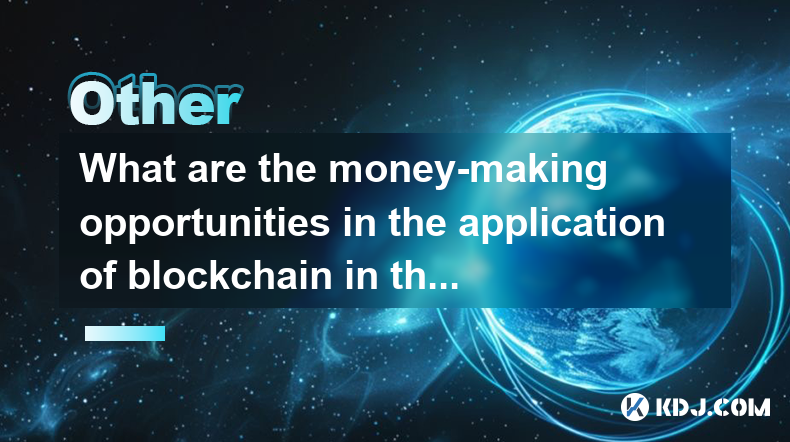-
 Bitcoin
Bitcoin $82,509.8850
-2.52% -
 Ethereum
Ethereum $1,800.3816
-3.46% -
 Tether USDt
Tether USDt $0.9996
-0.02% -
 XRP
XRP $2.0537
-1.80% -
 BNB
BNB $589.5226
-1.44% -
 USDC
USDC $1.0000
0.02% -
 Solana
Solana $116.3439
-6.85% -
 Dogecoin
Dogecoin $0.1595
-5.58% -
 Cardano
Cardano $0.6479
-2.79% -
 TRON
TRON $0.2366
-0.33% -
 Toncoin
Toncoin $3.5766
-9.59% -
 UNUS SED LEO
UNUS SED LEO $9.3922
-0.34% -
 Chainlink
Chainlink $12.7758
-5.57% -
 Stellar
Stellar $0.2586
-2.92% -
 Avalanche
Avalanche $18.1038
-3.99% -
 Sui
Sui $2.2274
-5.69% -
 Shiba Inu
Shiba Inu $0.0...01219
-1.98% -
 Hedera
Hedera $0.1627
-3.05% -
 Polkadot
Polkadot $4.0427
-1.01% -
 Litecoin
Litecoin $82.8658
-2.85% -
 MANTRA
MANTRA $6.3993
1.10% -
 Bitcoin Cash
Bitcoin Cash $298.9153
-0.95% -
 Bitget Token
Bitget Token $4.4795
-2.24% -
 Dai
Dai $0.9999
0.01% -
 Ethena USDe
Ethena USDe $0.9994
-0.04% -
 Hyperliquid
Hyperliquid $11.7782
-8.21% -
 Monero
Monero $212.0245
-3.58% -
 Pi
Pi $0.5720
-14.14% -
 Uniswap
Uniswap $5.8118
-4.56% -
 Aptos
Aptos $5.0504
-4.12%
How are the anonymity and privacy of blockchain reflected?
Blockchain offers pseudonymity, not anonymity; privacy coins like Monero use advanced techniques to enhance transaction privacy, but no system is completely untraceable.
Mar 29, 2025 at 04:28 am

Blockchain's Double-Edged Sword: Anonymity vs. Privacy
Blockchain technology, at its core, is a public ledger. This inherent transparency often leads to confusion regarding its anonymity and privacy features. While blockchain itself isn't inherently anonymous, the level of privacy it offers depends heavily on the specific implementation and the cryptocurrency in question. Understanding this distinction is crucial for navigating the crypto landscape.
One common misconception is that all blockchain transactions are completely anonymous. This is false. While many blockchains utilize pseudonymous addresses (long strings of alphanumeric characters), these addresses, while not directly tied to real-world identities, can still be linked to individuals through various investigative techniques. This is where the difference between anonymity and privacy becomes critical.
Anonymity refers to the inability to link a transaction or address to a specific individual. Privacy, on the other hand, refers to the ability to control who can access information about your transactions. These are distinct concepts, and many blockchain systems offer varying degrees of both.
Pseudonymity: The Foundation of Blockchain Privacy
Most cryptocurrencies operate on a system of pseudonymity. Each user is assigned a unique public key and a corresponding private key. The public key is used to receive funds, and the private key is used to authorize transactions. While the public key is visible on the blockchain, it doesn't directly reveal the user's identity. This is the basis of the privacy offered by many blockchain networks.
However, linking pseudonymous addresses to real-world identities is possible through various means. Analyzing transaction patterns, correlating addresses with known entities, and using on-chain and off-chain data analysis techniques can all compromise the privacy afforded by pseudonymity. Sophisticated techniques like chain analysis are employed by law enforcement and other organizations to trace cryptocurrency transactions.
Enhancing Privacy on the Blockchain: Privacy Coins and Techniques
Recognizing the limitations of basic blockchain pseudonymity, developers have created privacy-focused cryptocurrencies, often referred to as privacy coins. These coins employ various techniques to enhance the privacy of transactions.
- Zero-knowledge proofs: These cryptographic techniques allow users to prove the validity of a transaction without revealing any other information.
- Ring signatures: These obscure the origin of a transaction by making it appear as if it came from one of several possible addresses.
- Confidential transactions: These hide the amounts being transferred in a transaction.
- Mixing services: These services combine multiple transactions to further obfuscate the origin and destination of funds. However, it's important to note that the security and trustworthiness of these services vary widely.
The use of these privacy-enhancing techniques significantly increases the difficulty of tracing transactions back to individuals. However, no system is foolproof. Even privacy coins can be vulnerable to sophisticated analysis and attacks, particularly if users make mistakes or reveal identifying information through their interactions with exchanges or other services.
The Role of Mixing Services and Tumblers
Mixing services, sometimes called tumblers, are designed to break the link between the sender and receiver of cryptocurrency. They work by combining multiple transactions from different users, making it difficult to trace the flow of funds.
However, using mixing services carries risks. Some services may be operated by malicious actors who could steal or monitor user funds. Furthermore, the use of mixing services can raise red flags for regulatory bodies and exchanges, potentially leading to account freezes or legal issues. Therefore, users should exercise caution and thoroughly research any mixing service before using it.
Exchanges and KYC/AML Regulations
Centralized cryptocurrency exchanges play a significant role in compromising the anonymity of blockchain transactions. Most reputable exchanges require users to undergo Know Your Customer (KYC) and Anti-Money Laundering (AML) procedures, which involve providing personal information to verify their identity. This information is often stored and can be accessed by law enforcement agencies.
This requirement significantly reduces the anonymity of cryptocurrency transactions, as users are now directly linked to their accounts and their activity on the exchange. While KYC/AML regulations are designed to prevent illicit activities, they also undermine the privacy features of blockchain technology for legitimate users.
On-Chain vs. Off-Chain Data: A Privacy Perspective
Analyzing on-chain data (information directly visible on the blockchain) is a common method for tracing cryptocurrency transactions. However, off-chain data (information not directly on the blockchain, such as IP addresses, exchange records, and user interactions with other services) can provide crucial clues to connect pseudonymous addresses with real-world identities.
The combination of on-chain and off-chain analysis makes it increasingly difficult to maintain complete anonymity when using cryptocurrencies. This highlights the ongoing tension between the desire for privacy and the need for transparency and regulatory compliance within the cryptocurrency ecosystem.
The Future of Blockchain Privacy
The ongoing development of privacy-enhancing technologies and the increasing sophistication of analysis techniques are shaping the future of blockchain privacy. The balance between anonymity, privacy, and regulatory compliance will continue to evolve, impacting the way individuals and organizations utilize blockchain technology. The pursuit of greater privacy within the crypto space is an ongoing challenge, with developers and researchers constantly exploring new methods to enhance user protection.
Frequently Asked Questions
Q: Is Bitcoin anonymous?
A: Bitcoin is not anonymous, but pseudonymous. Transactions are linked to public addresses, not directly to individuals. However, these addresses can be linked to individuals through various investigative techniques.
Q: What are privacy coins?
A: Privacy coins are cryptocurrencies designed to enhance the privacy of transactions using techniques like zero-knowledge proofs and ring signatures. Examples include Monero and Zcash.
Q: How can my blockchain transactions be traced?
A: Transactions can be traced through analysis of on-chain data (transaction history on the blockchain) and off-chain data (information not directly on the blockchain, such as IP addresses and exchange records).
Q: Are mixing services safe?
A: The safety of mixing services varies widely. Some may be operated by malicious actors, while others may be legitimate but still carry risks due to regulatory scrutiny. Thorough research is crucial before using any mixing service.
Q: What is the difference between anonymity and privacy in blockchain?
A: Anonymity means your identity cannot be linked to your transactions. Privacy means you control who can access information about your transactions. Many blockchains offer pseudonymity, a weaker form of both.
Q: How do KYC/AML regulations affect blockchain privacy?
A: KYC/AML regulations require exchanges to collect user information, linking their identities to their cryptocurrency transactions and reducing anonymity. This is a trade-off between preventing illicit activity and protecting user privacy.
Disclaimer:info@kdj.com
The information provided is not trading advice. kdj.com does not assume any responsibility for any investments made based on the information provided in this article. Cryptocurrencies are highly volatile and it is highly recommended that you invest with caution after thorough research!
If you believe that the content used on this website infringes your copyright, please contact us immediately (info@kdj.com) and we will delete it promptly.
- How XRPL Utility Can Support Token Price Growth
- 2025-04-04 05:35:12
- Long-dormant Bitcoin wallets have suddenly sprung to life
- 2025-04-04 05:35:12
- ExoraPad ($EXP), an innovative AI-powered launchpad exclusively developed for the XRP Ledger (XRPL), has reached an impressive milestone
- 2025-04-04 05:30:12
- XRP Price Surge Could Enable Early Retirement for Numerous Investors
- 2025-04-04 05:30:12
- XRP Price Prediction: Will XRP Bounce From This Support Or Continue Its Descent?
- 2025-04-04 05:25:12
- As US Treasury yields hit 6-month lows, Bitcoin (BTC) price may be poised for a breakout
- 2025-04-04 05:25:12
Related knowledge

What are the future development trends of blockchain game development?
Apr 03,2025 at 05:00am
Blockchain technology has revolutionized various industries, and gaming is no exception. As we look to the future, several trends are set to shape the development of blockchain games. These trends not only promise to enhance the gaming experience but also to integrate blockchain technology more seamlessly into the gaming ecosystem. Let's explore these t...

What are the maintenance costs of blockchain system development?
Apr 03,2025 at 06:07pm
The maintenance costs of blockchain system development are multifaceted and depend on various factors. These costs can include technical maintenance, security updates, infrastructure expenses, and personnel costs. Understanding these elements is crucial for anyone planning to develop or maintain a blockchain system. Technical MaintenanceTechnical mainte...

What are the money-making opportunities in the application of blockchain in the medical industry?
Apr 03,2025 at 03:35am
The integration of blockchain technology into the medical industry presents a myriad of money-making opportunities that can revolutionize healthcare systems. Blockchain's inherent characteristics, such as transparency, security, and immutability, make it an ideal solution for various medical applications. By leveraging blockchain, companies can develop ...

What are the money-making opportunities when blockchain and artificial intelligence are combined?
Apr 04,2025 at 01:28am
The convergence of blockchain and artificial intelligence (AI) presents a myriad of money-making opportunities within the cryptocurrency circle. This fusion leverages the decentralized and secure nature of blockchain with the analytical prowess of AI, creating innovative solutions and platforms that can generate significant revenue. From enhancing tradi...

What does blockchain mean and how can it promote transparency in the charity sector?
Apr 03,2025 at 08:29pm
Blockchain technology is a decentralized, distributed ledger that records transactions across numerous computers. This ensures that the data is transparent and nearly impossible to alter retroactively. Essentially, blockchain serves as a digital ledger of all cryptocurrency transactions, enabling secure and direct exchanges without the need for intermed...

What does blockchain mean and how does it achieve efficient asset tokenization?
Apr 03,2025 at 07:57pm
Blockchain technology is a decentralized, distributed ledger that records transactions across numerous computers. It ensures that each transaction is secure, transparent, and immutable. The concept of blockchain was introduced with the launch of Bitcoin in 2009, but its applications have since expanded far beyond cryptocurrencies. At its core, blockchai...

What are the future development trends of blockchain game development?
Apr 03,2025 at 05:00am
Blockchain technology has revolutionized various industries, and gaming is no exception. As we look to the future, several trends are set to shape the development of blockchain games. These trends not only promise to enhance the gaming experience but also to integrate blockchain technology more seamlessly into the gaming ecosystem. Let's explore these t...

What are the maintenance costs of blockchain system development?
Apr 03,2025 at 06:07pm
The maintenance costs of blockchain system development are multifaceted and depend on various factors. These costs can include technical maintenance, security updates, infrastructure expenses, and personnel costs. Understanding these elements is crucial for anyone planning to develop or maintain a blockchain system. Technical MaintenanceTechnical mainte...

What are the money-making opportunities in the application of blockchain in the medical industry?
Apr 03,2025 at 03:35am
The integration of blockchain technology into the medical industry presents a myriad of money-making opportunities that can revolutionize healthcare systems. Blockchain's inherent characteristics, such as transparency, security, and immutability, make it an ideal solution for various medical applications. By leveraging blockchain, companies can develop ...

What are the money-making opportunities when blockchain and artificial intelligence are combined?
Apr 04,2025 at 01:28am
The convergence of blockchain and artificial intelligence (AI) presents a myriad of money-making opportunities within the cryptocurrency circle. This fusion leverages the decentralized and secure nature of blockchain with the analytical prowess of AI, creating innovative solutions and platforms that can generate significant revenue. From enhancing tradi...

What does blockchain mean and how can it promote transparency in the charity sector?
Apr 03,2025 at 08:29pm
Blockchain technology is a decentralized, distributed ledger that records transactions across numerous computers. This ensures that the data is transparent and nearly impossible to alter retroactively. Essentially, blockchain serves as a digital ledger of all cryptocurrency transactions, enabling secure and direct exchanges without the need for intermed...

What does blockchain mean and how does it achieve efficient asset tokenization?
Apr 03,2025 at 07:57pm
Blockchain technology is a decentralized, distributed ledger that records transactions across numerous computers. It ensures that each transaction is secure, transparent, and immutable. The concept of blockchain was introduced with the launch of Bitcoin in 2009, but its applications have since expanded far beyond cryptocurrencies. At its core, blockchai...
See all articles






















































































